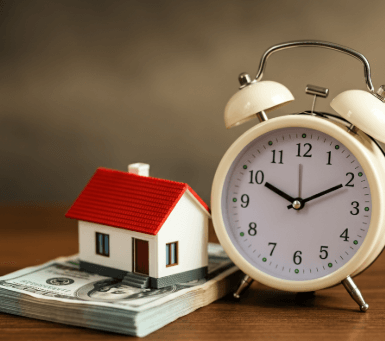In the dynamic world of real estate, understanding the average time to sell a house becomes a critical piece of knowledge for anyone looking to enter the housing market, whether you’re buying or selling. This blog will specifically hone in on the average time to sell a house in Florida, providing insights and analyses to help sellers and buyers alike. Exploring the intricate terrain of Florida’s real estate can be pretty challenging, with its unique market trends and seasonality affecting how long properties change hands. Join us in delving into the factors that impact the average time to sell a house in this vibrant state, offering expert advice and strategies to enhance your real estate ventures.
Steve Daria and Joleigh, renowned real estate investors, highlight the significance of grasping market dynamics in Florida. They note that the average time to sell a house in this state varies greatly, with seasonal fluctuations playing a pivotal role. Their expertise suggests that accurately timing the market can significantly affect the profitability of an investment.
Key Factors Influencing Florida’s House Sale Timing
Several variables dictate the speed at which a property sells in the Sunshine State. Your local real estate landscape, market demand, pricing, and the time of year play critical roles.
Regional Market Dynamics
Florida’s real estate scene is about as diverse as it gets. The bustling market of Miami carries a vastly different tempo than the tranquil beach towns of the Gulf Coast.
The local economy, job growth, and weather can fuel or dampen buyer interest. It’s essential to dig into the specific trends in your area.

Understanding Seasonality
Seasonality is significant in the Florida market, which experiences distinctive high and low seasons. Winter often sees a surge of tourists and a corresponding spike in home sales.
Meanwhile, the scorching summer months can slow things down as locals and visitors seek cooler climates and delay big purchases.
Setting the Right Price
Pricing your property right is one of your most important decisions. An overpriced home can languish for months, while a strategic price tag can attract competitive bids and shorten the selling process.
Work with a knowledgeable real estate agent to determine a price that fits the market and maximizes your return.
Decoding Florida’s Average Time to Sell a House
The Florida market data is a treasure trove of insights for buyers and sellers. Understanding these statistics empowers you to make informed decisions, whether listing a property or eyeing a purchase.
Current State of the Market
The 2022 Florida real estate market is robust, with high demand from out-of-state buyers and historically low inventory levels.
This competitive setting tends to expedite the sales process for well-positioned properties.
Historical Trends
Over the past five years, average days on the market (DOM) for Florida homes have varied widely.
In general, downward trends in DOM suggest a market that’s favorable to sellers, while upward trends can signal a cooling market.
Local Comparisons
When comparing different Florida cities, you’ll notice significant variations. For example, homes in popular beach destinations may sell within days, thanks to solid vacation and second-home market demand.
In contrast, inland or more rural areas may experience slightly more extended selling periods due to different buyer profiles and market conditions.
Get An Offer Today, Sell In A Matter Of Days…
How to Expedite Your House Sale in The Florida Real Estate Market
If you’re eager to sell your Florida home quickly, it’s time to roll up your sleeves and implement some strategic actions.
These tips and tactics can enhance your property’s appeal, streamline sales, and attract motivated buyers.
Boosting Curb Appeal
First impressions are crucial in the real estate industry as they can significantly impact the outcome.
Given Florida’s lush landscapes and tropical charm, a well-maintained garden and a fresh coat of paint can significantly increase your home’s attractiveness.

Navigating your Home’s Presentability
The way you present your home can make or break a sale. Consider staging, decluttering, and depersonalizing to create a breathing room that allows potential buyers to envision themselves living there.
Leveraging Marketing and Exposure
Your property needs to stand out in a crowded market. High-quality photography, virtual tours, and strategic listing placements can pique buyer interest and bring more traffic to your listing.
Working with a Seasoned Real Estate Agent
An experienced local agent can be your greatest ally. They bring a wealth of local knowledge, a network of industry contacts, and negotiation skills that can significantly improve your selling experience.
The Selling Season: When Is The Average Time To Sell a House in Florida?
Timing your home sale in Florida is an art. The State’s unique seasonality and regional market quirks mean there’s no one-size-fits-all answer.
However, these general trends can provide a starting point if you’re flexible.
The High Season Rush
Selling your home during Florida’s high season (winter) means you’ll welcome an influx of prospective buyers.
However, competition is fierce, so ensure your property is market-ready to take advantage of the peak sales period.
The Seller’s Spring Sweet Spot
Spring can be another optimal season for selling, as it bridges the gap between the high winter and the quieter summer.
The mild weather and the lead-up to vacation season can keep buyer activity buoyant.
The Slow Summer Strategem
While summer traditionally sees a dip in sales, this season can be advantageous for sellers who cater to summer-specific buyers, such as those looking for vacation homes or retirees who prefer the slower pace of off-season Florida.
Financial Considerations When Selling a House in Florida
The financial aspect of selling your home is complex, but understanding the costs and potential returns can help you make intelligent decisions.
Calculating Your Net Proceeds
Calculating net proceeds is crucial for knowing your profit from selling a home. Net proceeds are your take-home amount after deducting selling costs, like agent commissions, closing costs, and outstanding mortgages, from the sale price.
But what are closing costs? These are the fees and expenses paid when closing a real estate deal, covering things like title insurance, appraisal fees, and property taxes.
Understanding what are closing costs can help you budget accurately and ensure you’re prepared for all potential expenses.
By knowing these costs upfront, you can better estimate your net proceeds and confidently plan your financial future.
Capitalizing on Equity
If you’ve built significant equity in your home, selling can mean a substantial financial boost. Equity can be used for a down payment on your next home, investments, or debts.
Tax Implications
Selling a property can have tax implications, such as capital gains tax. Speak with a tax professional to understand your liabilities and available exemptions.
Expert Insights on Navigating a Successful House Sale in Florida
Real estate professionals and market experts offer a wealth of knowledge to help you sell smarter.
The Role of Pre-inspections
Pre-inspections can detect issues that may slow down or derail a sale.
Addressing these issues early gives sellers the upper hand in negotiations and can expedite the closing process.
Flexibility Is Key
Being flexible with showings, offers, and closing dates can make your property more catchy to buyers and help speed up the selling process.
The Power of Patience
While we’ve discussed the average time to sell a house and ways to expedite your sale, it’s important to remember that patience is sometimes a virtue.
Not rushing the process can lead to better decisions or a more favorable outcome. Trust the process, and the right buyer will come.
The Seller’s Balancing Act: Speed vs. Optimal Terms
When selling your home, you often need help with the desire for a quick sale to secure the best possible terms. It’s crucial to strike a balance between your financial and personal objectives.
Evaluating Offers
Not all offers are equal, even with the same price tag and closing date. Consider the buyer’s financing, contingencies, and flexibility when evaluating offers.
Timing and Market Demand
High demand can result in quick sales, but it only sometimes means sellers get the best deals. Pay attention to the market dynamics, and be prepared to pivot your strategy if necessary.
Understanding the Local Real Estate Customs
Real estate customs can vary by region. In Florida, for instance, it’s common for sellers to provide recent property surveys to buyers.
Adhering to these customs can smooth the process and speed up the transaction.
Takeaways
- Market Conditions Impact Timeframes: Current market conditions can significantly affect the average time to sell a house in Florida. In a seller’s market, homes tend to sell faster due to higher demand, whereas in a buyer’s market, the process may take longer due to increased competition.
- Location Matters: A property’s location is a major factor in how quickly it sells. Properties in popular urban areas or tourist destinations in Florida often see quicker sales than those in rural or less desirable areas.
- Pricing Strategy: Setting the right price is crucial for reducing the average time to sell a house in Florida. Overpricing can deter buyers and prolong the selling process, while competitive pricing can attract more interest and lead to faster offers.
- Staging and Presentation: Well-staged and properly maintained homes tend to sell more quickly. Improving curb appeal and making necessary repairs can make a property more attractive to buyers, helping it sell quickly.
- Leveraging Professional Help: Working with experienced real estate agents can help sellers navigate the market more effectively. Professionals can provide insights into market trends, recommend pricing strategies, and market properties efficiently to shorten the selling time.
**NOTICE: Please note that the content presented in this post is intended solely for informational and educational purposes. It should not be construed as legal or financial advice or relied upon as a replacement for consultation with a qualified attorney or CPA. For specific guidance on legal or financial matters, readers are encouraged to seek professional assistance from an attorney, CPA, or other appropriate professional regarding the subject matter.

